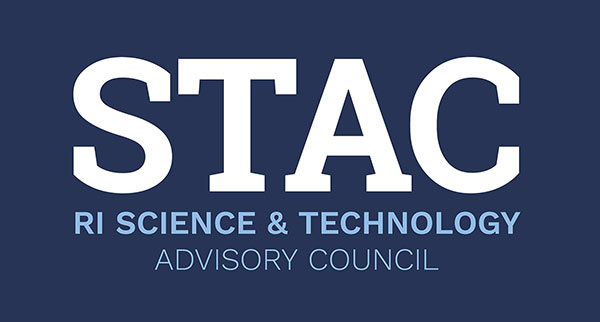2018 STAC Collaborative Research Grant Awardees
Five interdisciplinary research teams were selected to receive funding, totaling $389,996, from the Science & Technology Advisory Council (STAC) this year. Research projects directly address the RI NSF EPSCoR proposed program themes of:
- Assessing Resilience: What are the key data, methods, and/or techniques needed to assess the current health of Narragansett Bay and its resilience to anthropogenic stressors in real time?
- Understanding complexity: How can our understanding and data collections of the physical, biogeochemical and ecological processes that contribute to coastal ecosystem complexity be used to improve and evaluate Narragansett Bay ecosystem models?
- New Innovations: What new innovations in sensors are needed to improve the collection of data on the physical, biogeochemical, and ecological processes as well as anthropogenic stressors (e.g., pollution) that are impacting Narragansett Bay?
- Increasing Engagement: How can novel approaches to the visualization of complex information, coastal species and environmental change, fostered through the collaboration of artists, designers, engineers and scientists, promote broader engagement in and understanding of scientific research, data, and findings?
- Improving Sustainability: How does the environment affect humans and how can human behavior and responses be modified to improve coastal ecological and economic sustainability?
Recipients
Exploring the capabilities of a new benthic lander system for investigating sediment biogeochemical exchange – a critical boundary condition for ecosystem modeling in Narragansett Bay ($73,834)
The proposed work is a proof-of-concept exploring the utility of the new instrument to measure seafloor processes being acquired as part of the C-AIM Bay Observatory. The project will provide basic data for determining the role of sediments in influencing nutrient and contaminant input to the waters of the bay and will be used to support future modeling efforts.
- Rebecca Robinson, University of Rhode Island
- John King, University of Rhode Island
- Brice Loose, University of Rhode Island
- David Taylor, Roger Williams University
The Response of Marine Bacteria in Narragansett Bay to Microplastics, a Key Anthropogenic Stressor ($80,000)
This goal of this project is an experimental approach that combines high resolution imaging, DNA sequencing and enzyme analytics that will uncover both the physicochemical and biological responses to stressors and is unique. It will lead to a reliable assessment of the health and resilience of the Bay, spawn new imaging infrastructure, and will be important for developing policies aimed at safeguarding marine life in the Bay.
- Arijit Bose, University of Rhode Island
- Anubhav Tripathi, Brown University
Glider-Based Observations of Hydrography and Nutrients in Rhode Island Sound in Support of RI C-AIM Modeling ($79,968)
The main goal of the project is to equip a Slocum glider, an autonomous underwater survey vehicle, with a sensor to measure dissolved nitrate in the ocean. The objective is to obtain data on the temporal and spatial variability in nitrate concentration in the coastal ocean south of Narragansett Bay.
- David Ullman, University of Rhode Island
- Melissa Omand, University of Rhode Island
- Benjamin Knorelin, Brown University
Assessing changes in coastal ecosystem engineers and associated communities in Narragansett Bay ($79,970)
This project will assess the current health of economically and ecologically important habitats in Narragansett Bay by surveying the fish, invertebrate, and seaweed communities through a combination of traditional methods (e.g. random quadrat sampling) and a novel video transect method at sites dominated by rockweed or kelp and for which there are historical records.
- Carol Thornber, University of Rhode Island
- Lindsay Green-Gavrielidis, University of Rhode Island
- David Taylor, Roger Williams University
- Niels Hobbs, University of Rhode Island
- Giancarlo Cicchetti, U.S. Environmental Protection Agency
Developing novel molecular geochemistry tracers to understand phytoplankton community contribution of food web architecture of Narragansett Bay ($76,224)
This project centers on characterizing phylogenetically-diagnostic molecular “fingerprints” (stable carbon isotope values of essential amino acids) of major evolutionary branches of coastally-relevant phytoplankton.
- Kelton McMahon, University of Rhode Island
- Breea Govenar, Rhode Island College
